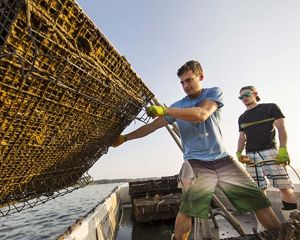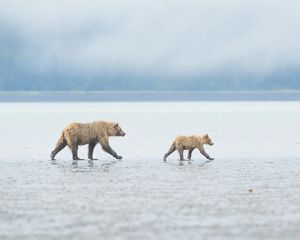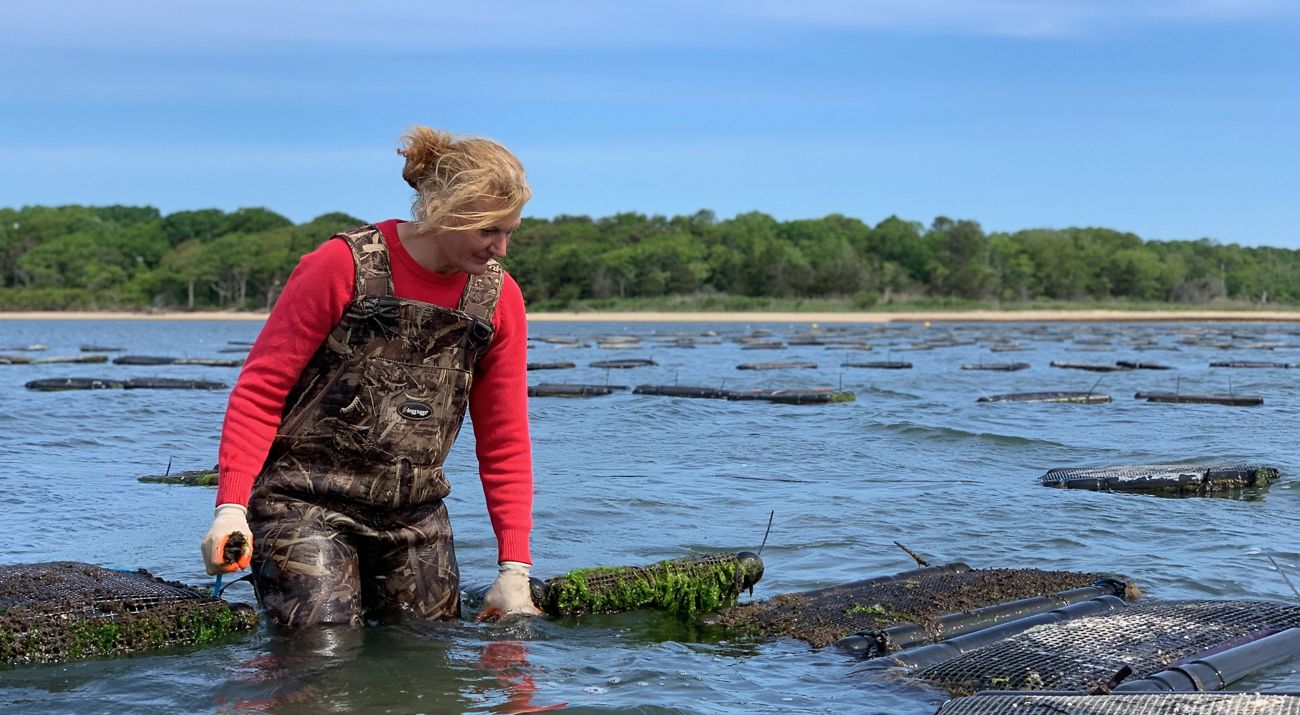
A Slam Dunk for New York Oysters
SOAR project helps coastal ecosystems and oyster farmers like basketball star Sue Wicks.
Oyster farming has more in common with women’s basketball than one might initially think. There’s the teamwork involved, the dedication, the hard, physical labor. Making a living doing what you love in both fields requires some serious hustle. Sue Wicks, former WNBA all-star and native Long Islander, expected all that when she took up oyster farming in Moriches Bay. What she didn’t anticipate was that her fledgling farm, Violet Cove—and the nation’s oyster industry as a whole—would be put at risk by a pandemic.
“When COVID-19 shut everything down in March, it was a really big problem,” says Wicks. In a typical year, she’d sell 6,000 oysters a week in the springtime, mostly to restaurants and bars. In March, with sales down to 500 oysters a week, she had to lay off her two employees. Work on the water that she describes as “very much a team sport,” she began doing solo, asking herself questions about what the future might bring.
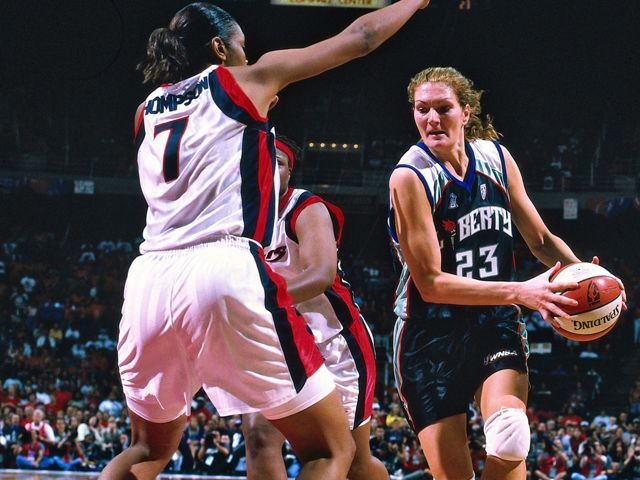
Luckily for Wicks and more than three dozen New York oyster farmers like her, a collaboration between The Nature Conservancy and the Pew Charitable Trusts came through with a valuable assist: the organizations purchased five million oysters that farmers in seven states could no longer sell because of the COVID-depressed market, and used them to build and restore wild oyster reefs.
From Full Court to Half Shell
An athlete in love with the sea, Wicks grew up looking for clams with her siblings and bayman father in Center Moriches, on Long Island, all the while honing her basketball skills. At Rutgers University in the mid-1980s, she became an All-American and Player of the Year, then hooped professionally in Europe and Japan for a decade before joining the WNBA in its inaugural, 1997 season. She played six years with the New York Liberty, the league’s Big Apple franchise, and became a fan favorite, an all-star and one of only a handful of out lesbian athletes in professional sports.
Quote: Sue Wicks
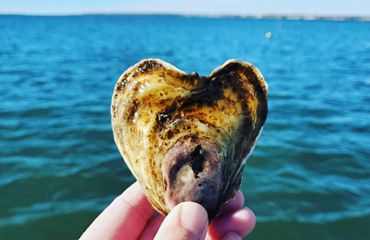
I think what makes you an oyster farmer is radical optimism. You can’t miss a season and say, ‘I’m going to sit this one out.’
As an athlete, Wicks has always tried to learn from mistakes and disappointments. With COVID-19 raging, she used that same approach to help her business survive. “I think what makes you an oyster farmer is radical optimism,” she says. “You can’t miss a season and say, ‘I’m going to sit this one out.’” So, she sold oysters at farmers’ markets and for home delivery. And she got a boost from local restauranteurs who banded together to purchase local crops.
“Every oyster farmer was just hustling, figuring out how to make it work,” she says. Then, as summer turned to fall and outdoor dining declined, she got wind of a project called SOAR from the head of her local oyster growers’ group.
Key Assist Helps Nature and People Thrive
Funded with the help of a generous donor, SOAR—Supporting Oyster Aquaculture and Restoration—is a joint project of The Nature Conservancy and the Pew Charitable Trusts in collaboration with the U.S. National Oceanic and Atmospheric Administration and the U.S. Department of Agriculture. Through the program, Wicks’ farm sold 20,000 oysters for transplant in Moriches Bay, one of six sites the program set up around New York with the help of the New York State Department of Environmental Conservation.
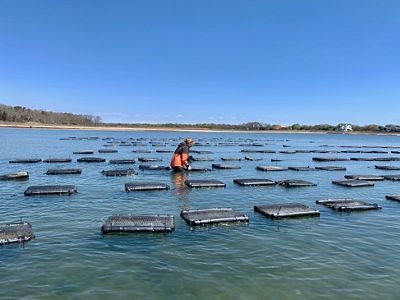
“The project is a win for everyone,” says Adam Starke, New York estuary scientist for The Nature Conservancy. “The participating farmers get paid for oysters they otherwise wouldn’t be able to sell. And nature—including all of us—wins because oysters play a critical role in the coastal ecosystems we depend upon.”
Though many know oysters as briny, raw bar delicacies, these amazing mollusks also clean coastal waters, provide nurseries for young fish and—when a large and healthy enough population exists—help to protect coastal communities from increasingly dangerous storms.
For the former WNBA all-star and the other oyster farmers in the small, tight-knit growers’ community, the program has brought a sense of relief. This summer, Wicks’ initiative enabled her to bring her sales up to 50 percent of normal volume and to hire two part-time workers. The proceeds from her SOAR sale are “enough to keep my workers employed and my boat running for the next four months,” she says.
For oyster farmers like Wicks, concerned not only about the survival of their businesses but also about the ecosystems that allow them to thrive, SOAR has brought, she says, “a lot of peace of mind.”
Learn More About SOAR
We're working with the Pew Charitable Trusts to support oyster farmers here in New York and across the country.
